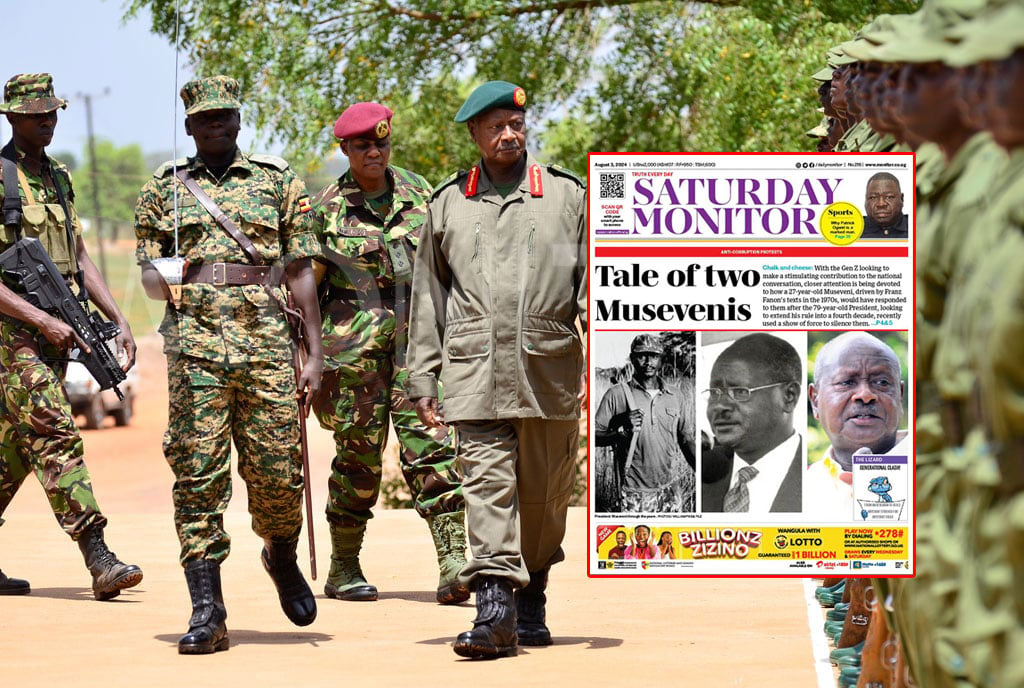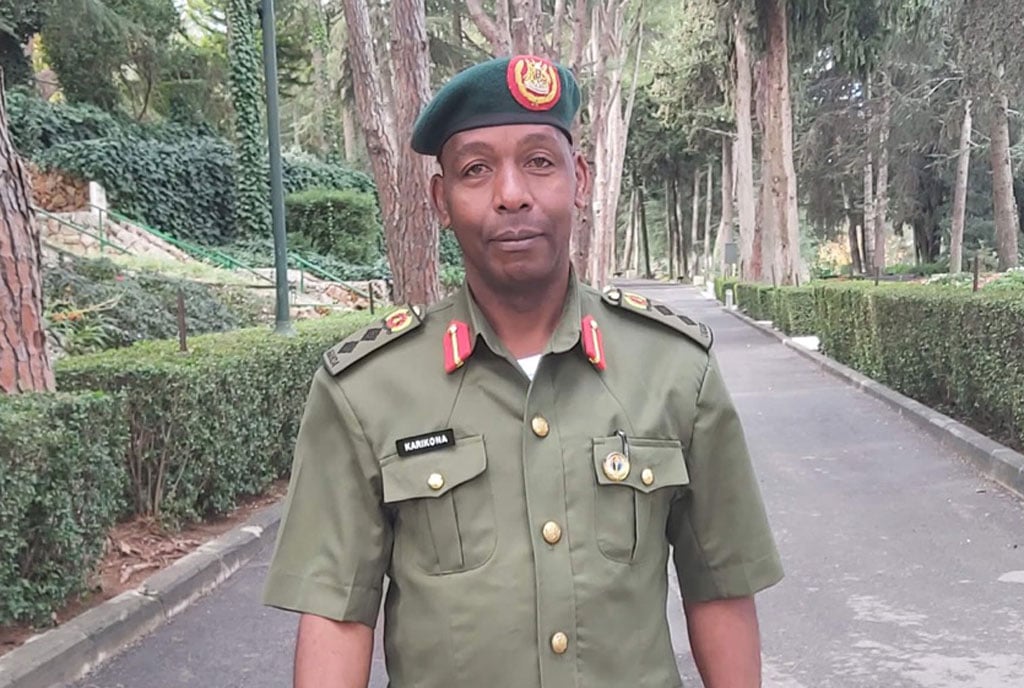Dear UPDF, Monitor means well

President Museveni inspects a guard of honour during the pass out of soldiers in 2023. Museveni’s philosophy and political-military paths have fundamentally been his concern to cause the social metamorphosis of society. Inset is the August 3, 2024 Monitor front page which UPDF is basing on to accuse the publication of being on a "war path." PHOTO/FILE
What you need to know:
- By moving to sanction and put on trial officials, including Members of Parliament, the government has acknowledged that there is a problem that needs to be addressed.
- The young people unhappy with corruption should be seen as allies in this effort, not enemies to be crushed.
- Previous governments had many chances to do the right things; to end sectarianism, to end human rights abuses, to end wrong political and economic policies. History shows that they did not take those chances.
The Director of Ideological Development in the Uganda People’s Defence Forces (UPDF) has responded to our August 3 story, “Tale of two Musevenis” with a litany of grave allegations and open threats that cannot be ignored.
Col Deo Byate Karikona, inter alia, accused Monitor of engaging in a “protracted smear campaign against the Commander-in-Chief of the UPDF”, and of being “a counter-revolutionary mouthpiece” that is “openly on a war path”.
The article explored the depth of intellectualism of Mr Museveni, then a young student at the University of Dar es Salaam in Tanzania and later as a political activist and freedom fighter who mobilised and led an ultimately successful rebellion against the corrupt, incompetent and ruthless regimes that ruled over Uganda from 1971 to 1986.
The article juxtaposed this remarkable story with present-day efforts by young Ugandans to protest against some of the failures of the old regimes that they now see in the National Resistance Movement (NRM) government. Why an article based on well-established historical facts left a bee buzzing in Col Byate’s beret is hard to explain.
Yet it is not hard to see the insidious attempt, repeated often, to criminalise criticism of the government, or to manufacture a narrative that strips Ugandans of voice and agency, and seeks to attribute their actions to foreign funding or ulterior motives. Col Byate goes as far as to accuse this newspaper of going on a war path that requires the army to “defend the territorial integrity of Uganda and always protect the Commander-in-Chief”!
We believe that the Commander-in-Chief requires no help in robustly defending his actions from even the most acerbic views. Nevertheless, we take exception to such open threats from a senior military official.
Since independence in 1962, Uganda has been caught in endless cycles of violence often perpetuated by those in military uniform against civilians. The broad-based support for the National Resistance Movement/Army was premised on a collective willingness to restore the rule of law and constitutionalism in Uganda.
The 1995 Constitution borne out of this commonwealth of ideas reaffirmed that power lay in the hands of the people. The Constitution also provided citizens with many rights, including association, assembly and expression, while setting up institutions to act as arbiters in the exercise of these rights.
All of this was to ensure that future generations of young Ugandans would not have to take up arms against the government of the day, as a young Mr Museveni and his colleagues did against Idi Amin, Milton Obote and Tito Okello Lutwa.
Some young Ugandans, unhappy with what they see as widespread public corruption, have been looking at different ways of having their voices heard, primarily through peaceful protest. Their cause is just and their methods are constitutional.
The young men and women who took up arms against Idi Amin and Milton Obote were not only opposed to the corruption by those governments; they were also forced to do so by the abuse of power and the failure of the institutions of the day to deliver justice and hold those in power accountable.
By moving to sanction and put on trial officials, including Members of Parliament facing corruption charges, the government has acknowledged that there is a problem that needs to be addressed. The young people unhappy with corruption should be seen as allies in this effort, not enemies to be crushed.
Similarly, those voices, be they in the media or civil society, that urge the government to do more, faster, to ensure that public resources are used to provide public services instead of being pilfered, should be applauded and defended, not threatened and vilified.
Previous governments had many chances to do the right things; to end sectarianism, to end human rights abuses, to end wrong political and economic policies. History shows that they did not take those chances.
Point seven in the NRM’s 10-Point Programme is “elimination of corruption and misuse of power”. Future generations of Ugandans will look back at this epoch and see that we had an opportunity to correct course and return to this noble aspiration, and others like it. It would be remiss if, instead, they see that we misused power to entrench corruption.
By Monitor editors




